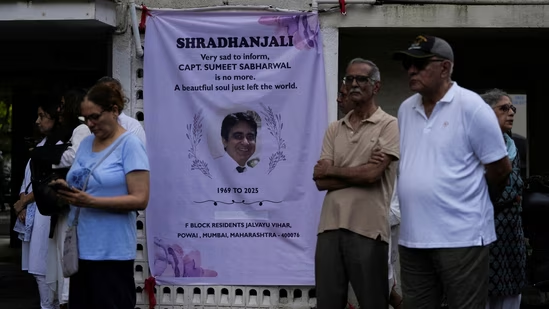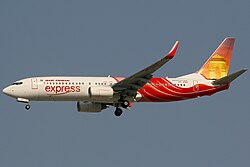NTSB slams media for speculative reporting on the Air India crash, emphasizing that the investigation is ongoing and no pilot error has been officially confirmed.

NTSB Criticizes Media for Speculative Claims Blaming Air India Pilot in Crash Report
The U.S. National Transportation Safety Board (NTSB) has officially condemned media reports attributing blame to the pilot involved in the Air India Express crash, calling them “speculative and misleading.” The aviation safety authority stressed that the investigation is ongoing and any conclusion regarding pilot error is premature.
Background: What Happened in the Air India Express Crash?
On August 7, 2020, Air India Express Flight IX-1344, operating under the Vande Bharat repatriation mission, overshot the runway at Kozhikode International Airport (Kerala, India) during heavy rain. The aircraft, a Boeing 737, skidded off the tabletop runway and broke into pieces, resulting in 21 fatalities, including both pilots, and over 100 injuries.
The accident was one of the deadliest aviation incidents in recent Indian history and has since been the subject of detailed investigation by Indian and international agencies, including the NTSB and Boeing.
Recent media coverage, especially from certain Indian outlets, suggested that pilot error was the primary cause of the accident, citing “sources close to the investigation.” Some reports claimed that the pilot ignored warnings and attempted a risky landing, fueling public outrage and emotional debates.
However, the NTSB responded sharply, calling these reports speculative and unverified.
“We have not made any public findings on the probable cause of the crash,” the NTSB said in a statement. “Attributing blame to the crew at this stage undermines the integrity of the investigation.”
In aviation, crash investigations are a meticulous, multi-agency process involving data from the flight data recorder (FDR), cockpit voice recorder (CVR), air traffic communications, maintenance records, and even weather data. The NTSB, along with India’s Directorate General of Civil Aviation (DGCA), is still analyzing all factors.
Jumping to conclusions without completing this complex investigation can lead to misinformation and reputational damage, especially for deceased crew members who are no longer able to defend themselves.
Respecting Due Process in Aviation Safety
Experts warn that media speculation during an ongoing investigation can severely impact public trust and aviation policy. According to Captain Rajeev Mehta, a retired commercial pilot and aviation safety consultant:
“Assigning blame to a pilot before official findings are out is not only disrespectful, it can influence public opinion and policy in harmful ways. Aviation investigations are not about finger-pointing—they’re about improving safety.”
While the NTSB has been vocal about irresponsible reporting, Boeing and the DGCA have refrained from making comments, adhering to international norms that require confidentiality until final findings are published.
The DGCA is expected to release the official accident report later this year. This report will include an analysis of all contributing factors, including runway conditions, pilot decisions, aircraft performance, and airport infrastructure.
Public Reaction and Ethical Journalism
The public reaction to the media’s coverage has been mixed. While some readers demand answers and accountability, others are criticizing the press for acting as “judge and jury” without facts.
Many aviation experts are now calling for greater responsibility in journalism, especially in technical fields like aviation where premature reporting can lead to public misunderstanding.
The NTSB and DGCA will continue to collaborate on the final accident report, which will also include safety recommendations to prevent similar accidents in the future. Until then, experts urge the media to refrain from assigning blame or speculating about the causes.
The final report will determine:
- Whether pilot error played a role.
- If airport design (tabletop runway) was a factor.
- How weather and visibility affected the situation.
- The response of air traffic control.
- Mechanical or technical issues, if any.
In high-stakes investigations like aviation accidents, truth and accuracy must come before headlines. The NTSB’s strong rebuke is a reminder that speculation, especially when it concerns lives lost, is not just unethical—it’s harmful.
As the aviation community and families of the victims wait for clear answers, respecting the investigative process is not just a legal obligation—it’s a moral one.
- NTSB has criticized media outlets for speculative reports blaming the pilot in the Air India crash.
- No official conclusion on the cause has been published yet.
- Final report expected to consider multiple factors, not just pilot behavior.
- Media urged to avoid premature conclusions and respect the investigation process.
READ ALSO…...Air India Crash: DGCA Submits Preliminary Report to Centre | 5 Key Findings to Be Made Public Soon















 Categories
Categories








